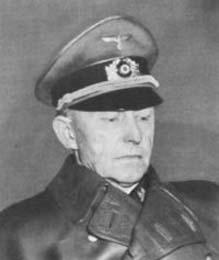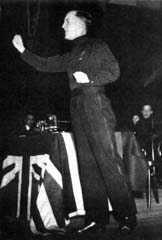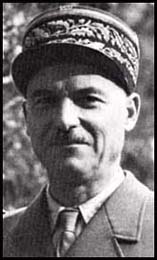was a Chinese politician, a member of the left wing of the Kuomintang (KMT) and is most noted for disagreements with Chiang Kai-shek and forming a Japanese supported collaborationist government in Nanjing; has often been labeled as a "Traitor to the Han Chinese"; in late 1938, left Chongqing and eventually ended up in Shanghai, to negotiate with the Japanese occupation; on March 30, 1940, however, became the head of state of the Wang Jingwei Government based in Nanjing, serving as the President of the Executive Yuan and Chairman of the National Government, and also maintaining his contacts with German and Italian fascists; lived in Japan during the wartime, along with official Japanese advisers, until he died of pneumonia four years later in Nagoya; for his role in the Pacific War, has been considered a traitor by most post-World-War-II Chinese historians; some took a different view and regard his collaboration with the Japanese as a good faith attempt to salvage China from foreign imperialism; such reasoning was rejected by the Kuomintang government, as his senior followers were all executed or imprisoned as traitors after the war.

outstanding German staff officer and Hitler's OKW Chief of Operations from 1939; had been associated with nationalist and anti-democratic racialist groups during the 1930s and remained, despite a disapproval of Nazism, a loyal and highly skilful technical adviser and executor of Hitler's strategic decisions; opposed the dismissal of General Halder and Field Marshal List in 1942 and asked for a field command, but remained on Hitler's staff; was injured while standing next to Hitler in the 1944 July Bomb Plot; in May 1945 signed the unconditional surrender document on behalf of Dönitz's government; was subsequently tried at Nuremberg as a 'planner of aggressive war', found guilty and hanged.

a British-bred broadcaster who worked in Germany under Goebbels' Propaganda Ministry, his regular radio programs purported to expose the weakness in the British war effort; his braying, upper class tones earned him the nicname 'Lord Haw-Haw', a term that suggests general amusement, rather that the credulity, of British listeners, at the substance of his exposures; born in New York and brought up in England and Ireland, was a member of the British Fascist Party under Mosley from 1932; in 1939, immediately before the outbreak of war, went to Germany to offer his services to the Reich; was arrested in May 1945 at Flensberg and returned to Britain to stand trial at the Old Bailey for treason; Although he claimed German (and possibly US) citizenship, his British passport was sufficient to secure his conviction; was hanged in Wandsworth Prison, London, in 1946.

generally regarded as an exceptional field commander, began his military career with the highest achievement record of his class at St Cyr military academy (a class which included Charles de Gaulle); as commander of the French 15th Motorized Division (1st Army) in 1940, his service in Belgium and northern France, where he was captured by German forces, was rewarded a personal request for his release from Marshal Pétain, who subsequently offered him the post of War Minister in the Vichy Government - a post which he refused; promoted instead C-in-C of French forces in North Africa, where he replaces Weygand, his command was initially handicapped by his ambivalence toward Vichy; but separate and secret negotiations between the French Army and the US resulted in the agreement of an armistice in North Africa and he brought his forces back into the war on the Allied side in late 1942, serving with distinction in Tunisia against Rommel's forces; later, in command of the French Expeditionary Corps in Italy in 1944, again proved his rare abilities in the field, notably at Monte Cassino during the Allied offensive to capture Rome, in what was described by an observer as 'one of the most daring and brilliant advances of the war'; promoted Chief of Staff of the French National Defense Committee under de Gaulle, was requested to raise 4 fresh divisions to participate in the liberation of France; before his death in 1967, held a NATO command; was buried at Les Invalides.
